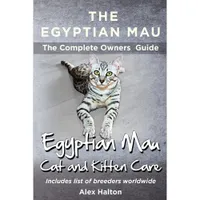Egyptian Mau cats are energetic, vocal and one of Mother Nature’s biggest fans
From their temperament to their grooming needs, discover whether an Egyptian Mau is the right kitty for your home
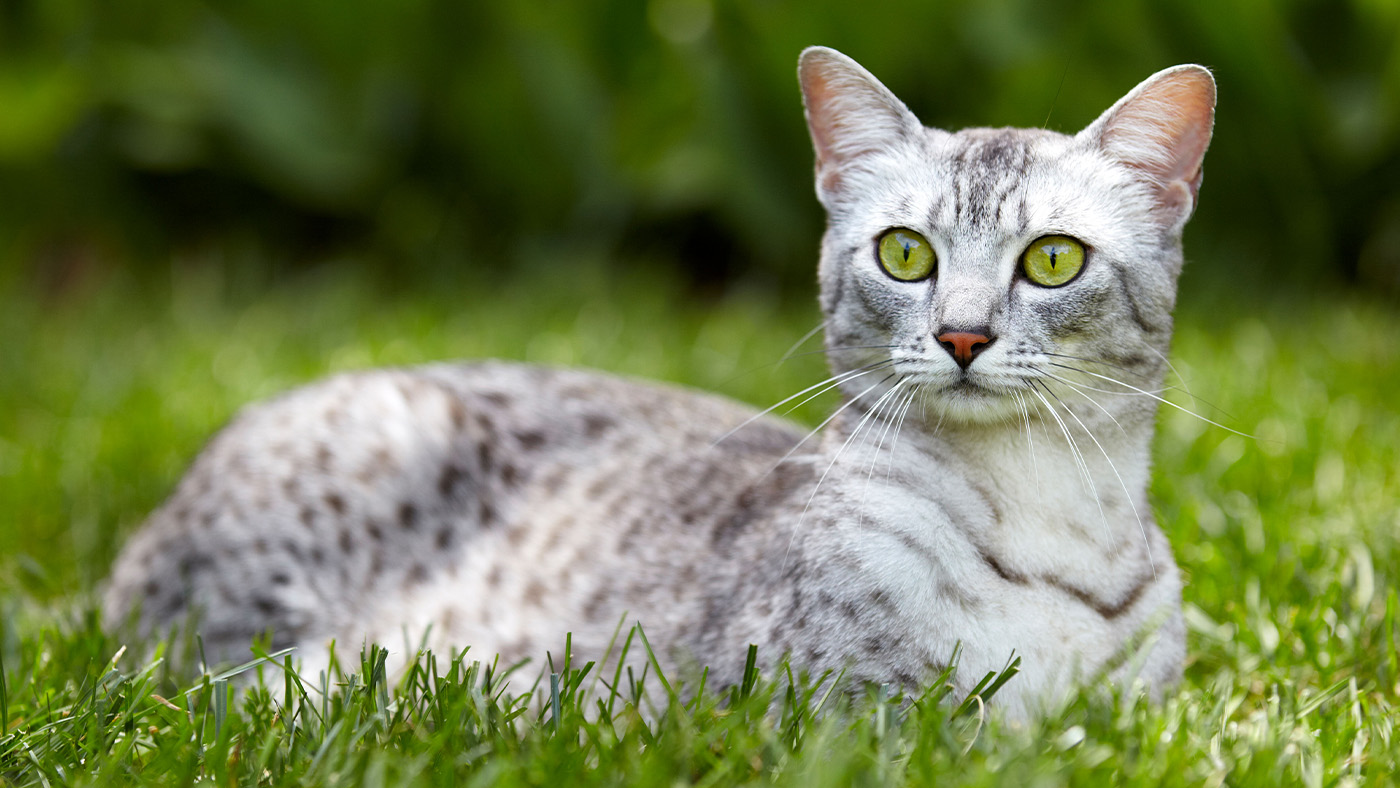
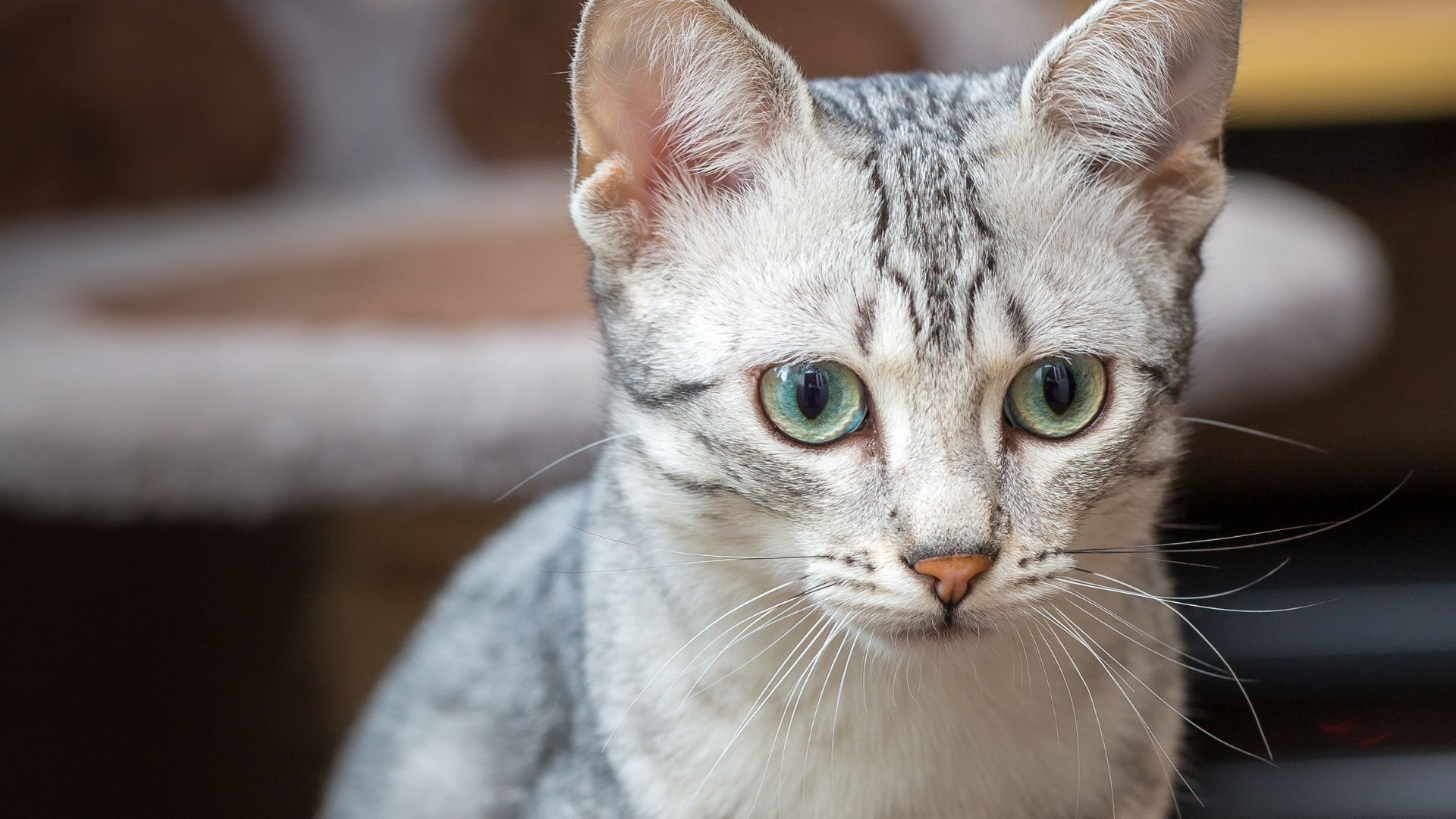
Other names: Mau
Life expectancy: 12–15 years
Size: 12–15" (length), 8–10" (height) and 6–14 lbs
Coat: black, silver, bronze and black or spotted tabby
Eye colour: green or amber eyes
Temperament: vocal, intelligent, active and loyal
Origin/native country: Egypt
The active and mischievous Egyptian Mau is known for being one of the longest living cat breeds and one of the most fascinating felines. We say this because this regal-looking cat comes with a seemingly never-ending list of attributes to its name.
For example, along with being extremely athletic, having low grooming needs and a love for the great outdoors, these water-loving cats have a very balanced temperament. This makes them a great all-rounder for family homes and households that already have pets.
But that’s if you can find one! A ‘Mau’ – which in Egyptian means ‘cat’ – is classed as one of the rarest breeds in the US and because of this, it's one of the most expensive breeds, too.
Still intrigued by this vocal breed of tabby? If that’s the case, do keep scrolling to find out everything there is to know about this cat and who this kitty might be best suited for.
Are Egyptian Mau cats hypoallergenic?
No, the Egyptian Mau is not considered to be a hypoallergenic cat breed. Explaining why, vet Dr Rebecca MacMillan says: “Though its short sleek fur may be less triggering than other breeds for mild allergy sufferers, they will shed moderate amounts all year round.”
Wondering how to reduce cat shedding? While there’s no ‘magic pill’ for preventing your Egyptian Mau from this completely natural process, there are some things you can do to help reduce the amount of hair found around your home.
For example, regular grooming with the right type of cat brush can help to remove dead hairs before they’re fully shed and prevent them from falling all over your home.
Get the best advice, tips and top tech for your beloved Pets
You could also check your anti-parasite regimen with a vet to ensure that your cat has been getting the correct dose and is up to date, as parasites, like fleas, lice, and mites, can all cause irritation, leading to increased grooming and shedding.
Are Egyptian Mau cats friendly?
They really are! Egyptian Mau cats are one of the friendliest cat breeds, known and loved for their affectionate nature.
“These cats enjoy human company and often form a strong bond with one family member, though they will still be sweet-natured with other people too,” explains Dr MacMillan. “They are intelligent cats that relish routine.”
Egyptian Maus can also get along just fine with other fur friends, like dogs, too.
“They usually get on OK with dogs in the household, provided there have been gradual introductions and the dog is laid back,” Dr MacMillan adds.
It’s a well-known fact that most cats and dogs are not naturally friends. But if you have a multi-pet household and are thinking about expanding your fur family with an Egyptian Mau, there are a range of tips and tricks that can help dogs and cats live together in perfect harmony.
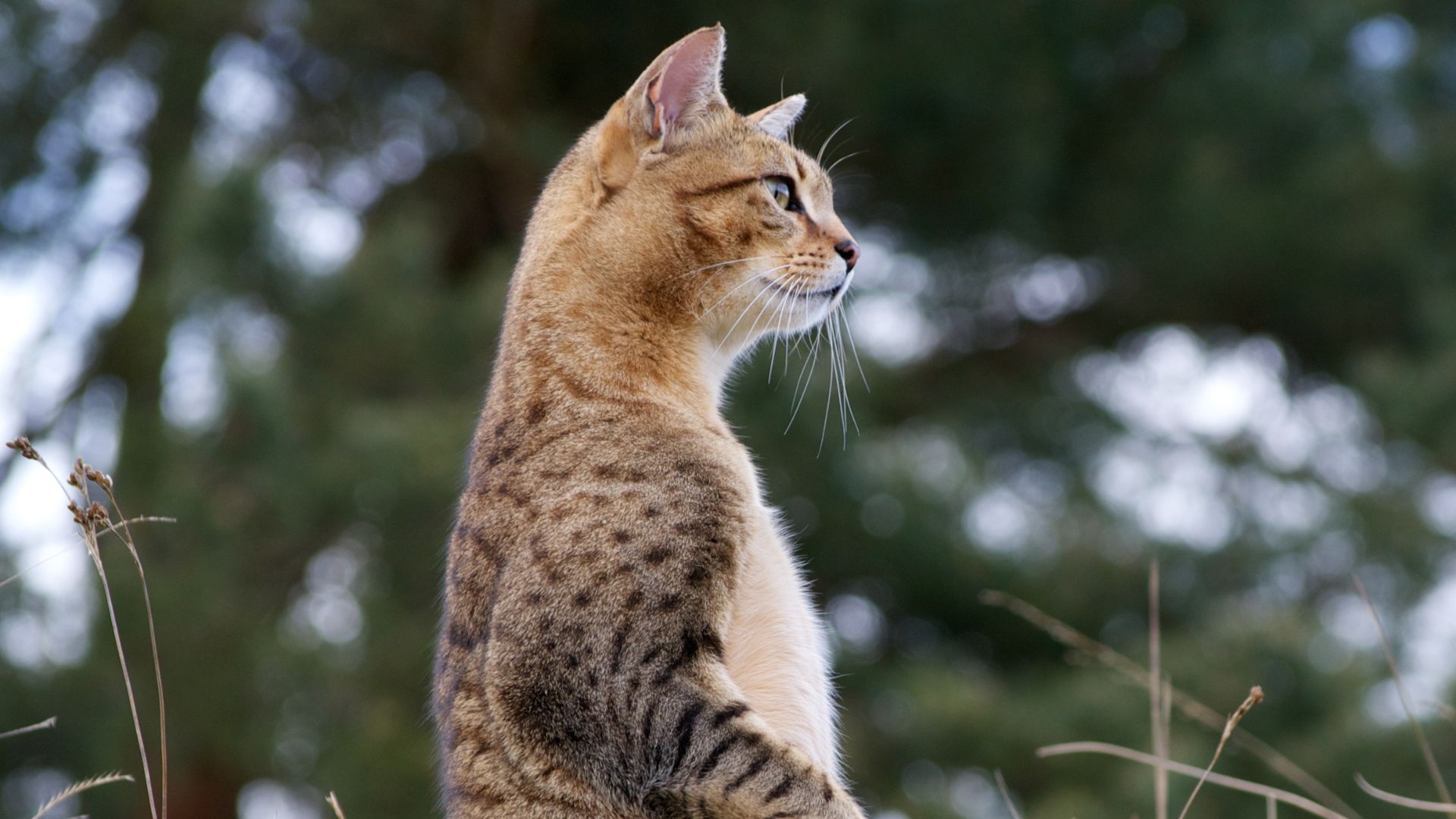
Are Egyptian Mau cats vocal?
Another fun fact about an Egyptian Mau cat? Just like a Siamese, Burmese and Tonkinese, these kitties are one of the loudest cat breeds.
“This breed is very vocal around their family and will often chirrup, yowl, and meow to communicate,” confirms Dr MacMillian. “These chatty cats enjoy using their voice to get attention, helping them bond with their owners. This behavior is often reinforced when their owners react back, and so the Egyptian Mau quickly learns that it’s a useful tool!”
So, if you have a lively household, this chatty companion could fit right in. The same goes for if you are living alone and are looking for a fur friend to share your thoughts with. Either way, if you intend to share your four walls with an Egyptian Mau, your home is going to be full of chatter.
How much grooming does an Egyptian Mau need?
Egyptian Maus are low-maintenance when it comes to grooming.
“Their coat only needs brushing once or twice a week to remove loose hairs and keep it looking smart,” says Dr MacMillian. While regular preventive oral care is also advised, as is the case with all cat breeds. "
So, if you don’t know how to do so already, learning how to brush your cat’s teeth will help you keep your cat’s teeth clean and healthy, and go a long way to keeping dental disease, like stomatitis, at bay.
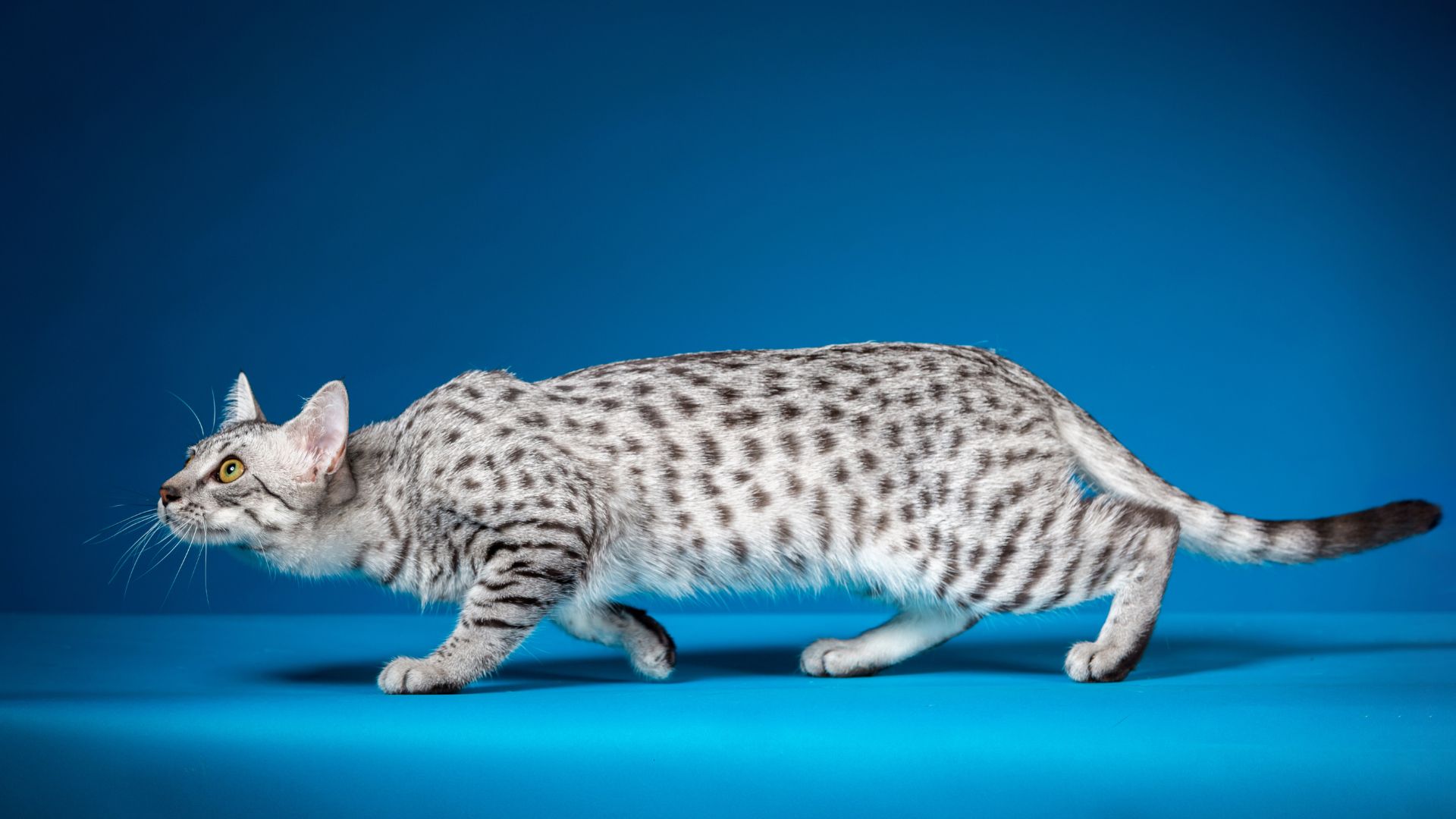
How much exercise does an Egyptian Mau need?
When it comes to exercise this athletic and energetic breed will need at least 30 minutes of play a day, so you'll need some of the best interactive cat toys to hand.
If you’ve got a safe and kitty-friendly outdoor space, an Egyptian Mau will also thrive from being outside, as it’s a cat breed that prefers living life outdoors. And, despite being domesticated, you’ll most likely find this cat standing on its hind legs, surveying the world beneath them.
This nature-loving breed loves water too, so will adore whiling away their days climbing and jumping. And, when rain ruins play, the best cat trees will help these fur friends still get their exercise-loving fix.
Wisdom Panel Cat DNA Test | Amazon
Not sure exactly what breed your cat is? This kit screens for 70+ breeds, 45 genetic health insights and 25+ physical traits – because knowing every detail about your cat helps you understand how best to care for them.
Egyptian Mau health problems
The good news is that Egyptian Maus are generally a pretty healthy cat breed. However, there are a few health conditions they can suffer from.
“Pyruvate kinase deficiency is a rare disease that can affect Egyptian Maus, causing red blood cells to die more quickly than usual,” explains Dr MacMillan. “This means that there is less blood circulating in the bloodstream and the cat becomes anaemic. This problem may not be noticed straight away as clinical signs can often be intermittent.”
Unfortunately, Dr MacMillan explains that this is a genetic defect, so there is nothing that a new owner can do to prevent it from occurring. However, she suggests owners look out for “symptoms, including pale or yellow gums, lethargy, muscle wastage, elevated heart rate, and exercise intolerance.”
Egyptian Maus can also be prone to cystitis, which is inflammation of the bladder.
“Owners need to be watchful for symptoms like blood in the urine, straining when urinating or only passing small amounts of urine at a time,” Dr MacMillan says. “They should also encourage their cat to take in more fluids by feeding wet food, adding water to their cat's diet, placing plenty of water dishes around the house and considering a cat drinking fountain.”
Like many other cats, the Egyptian Mau can be prone to tartar buildup and gingivitis, which is inflammation of the gums.
“This is why I always recommend preventative oral care, from an early age,” the vet says. “Toothbrushing with cat-friendly toothpaste is recommended and some may need regular veterinary cleanings too.”
How much does an Egyptian Mau cost?
The price of an Egyptian Mau can vary anywhere from $800–1,200 but they have been known to sell for up to $2,500, which makes them one of the most expensive cat breeds. That’s because Egyptian Maus are rare in the US, so finding one could cost you a pretty penny!
Towards the lower end of the scale, this puts the Egyptian Mau in the same price bracket as a Cornish Rex or an ocicat. While the higher end is how much you could expect to pay for an Abyssinian.
Either way, the final price you pay will hang on the breeder you choose and what state you're in.
Should I get an Egyptian Mau?
If well looked after, Egyptian Maus are pretty healthy companions and sociable creatures who enjoy living with an owner who is home for much of the day.
As lovers of the great outdoors, they would also thrive in homes that have access to safe outside spaces and if possible, somewhere that has water they can play in.
If you’ve already got another pet in your home, like a dog, then worry not, as most Egyptian Maus extend their friendly nature to other four-legged friends.
If you’re seriously considering adopting this breed, you’ll also need to take into consideration that this chatty companion will want to talk for most of the day, as these kitties are extremely vocal.
“They are adaptable and would be happy living in the city or countryside, provided they are given enough exercise and mental stimulation,” adds Dr MacMillan. “If you travel or work away from home a lot, then this perhaps isn’t the best cat for you,” the expert highlights.
The Egyptian Mau Owner’s Guide | Amazon
This easy to read guide shares how to care for your Egyptian Mau kitten and cat, plus amazing facts and how to create the perfect home for your feline.
Read next: Most mischievous cat breeds

Having graduated in 2009 from the Royal Veterinary College in London as a veterinary surgeon, Rebecca is highly experienced in first opinion small animal practice, having done a mixture of day-to-day routine work, on-call emergency duties and managerial roles over the years. Rebecca recently achieved a BSAVA postgraduate certificate in small animal medicine (with commendation).
Rebecca writes on various feline and canine topics, including behavior, nutrition, and health. Outside of work and writing she enjoys walking her own dog, spending time with her young family and baking!
Edited by Georgia Guerin.
This feature was last updated in September 2025 by Becks Shepherd.

Becks Shepherd is a lifestyle journalist who has worked with titles such as Tom's Guide, Marie Claire, and Fit and Well.
In addition to this, she’s a pet writer with nearly a decade of editorial experience across digital and print media. A devoted “dog aunt” and lifelong animal lover, Becks brings a personal touch to her pet content—whether she’s testing the latest dog gear or digging into behavioral tips.
She works closely with veterinary experts to ensure factual accuracy and is currently exploring animal care certifications to deepen her knowledge. Her work has appeared in leading outlets across health, wellness, and pet care spaces.

